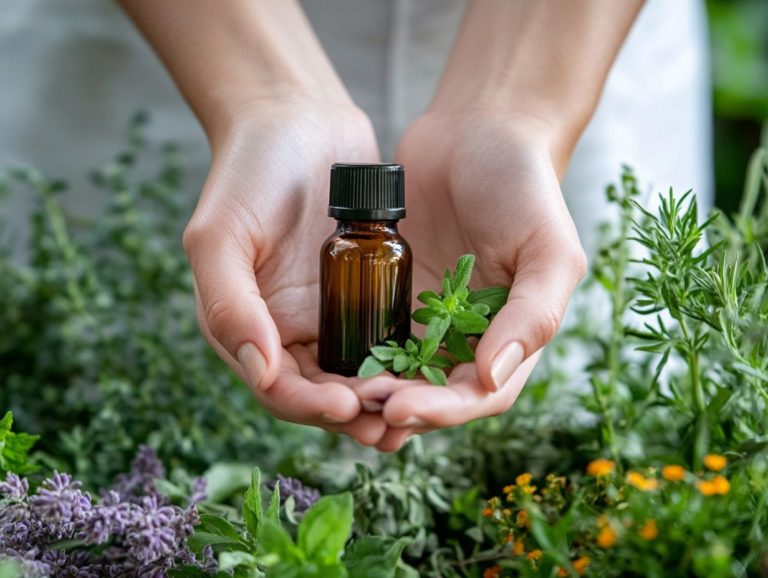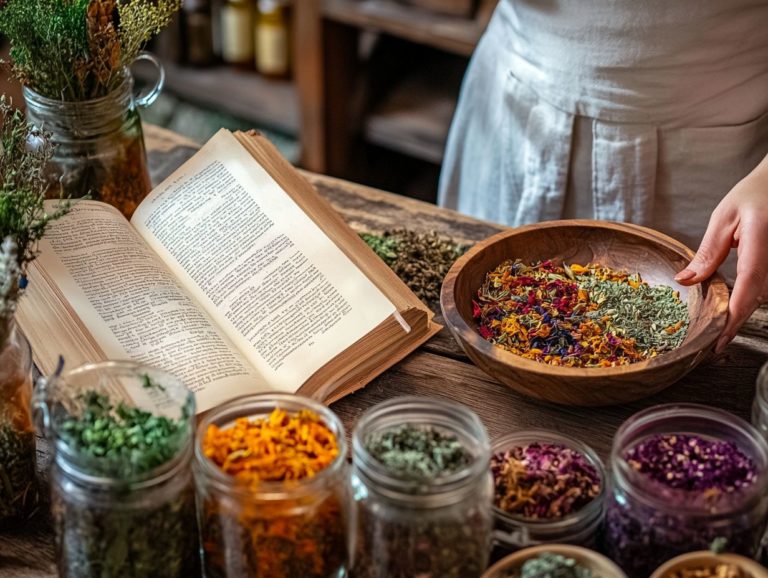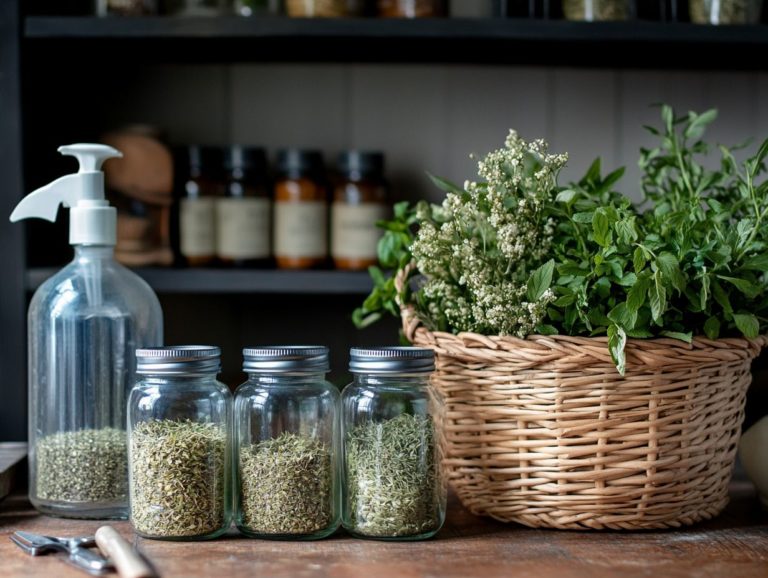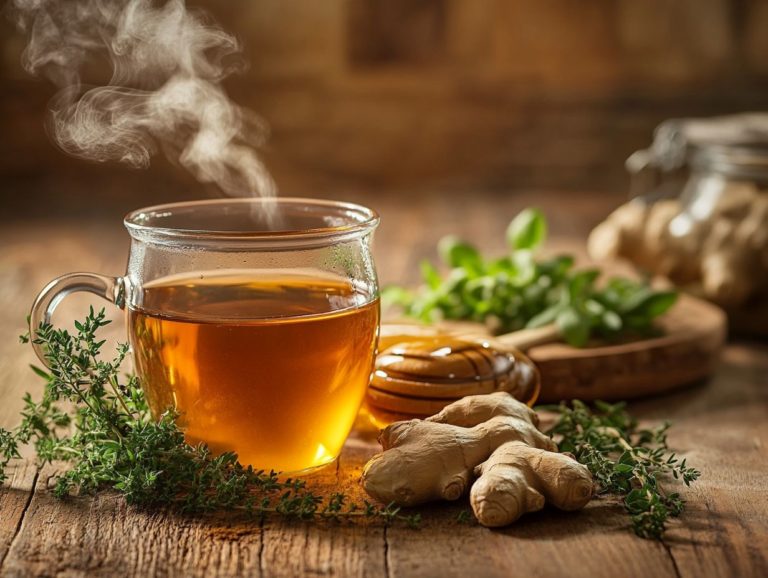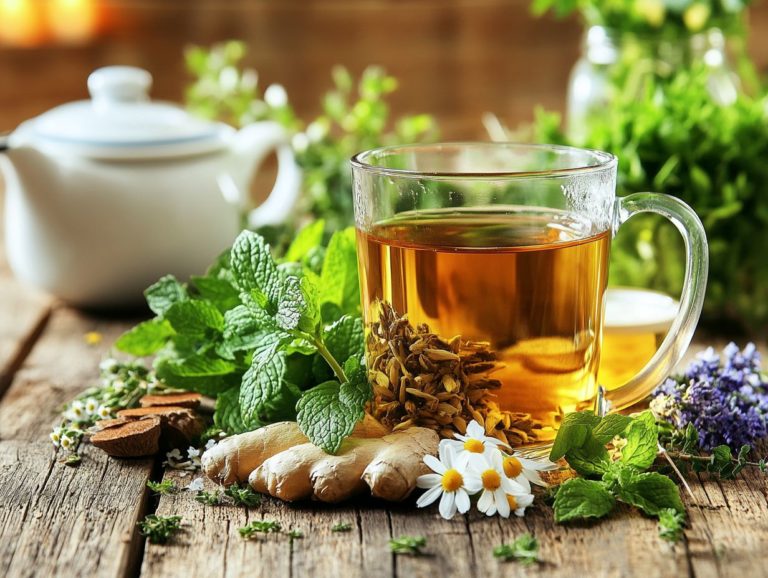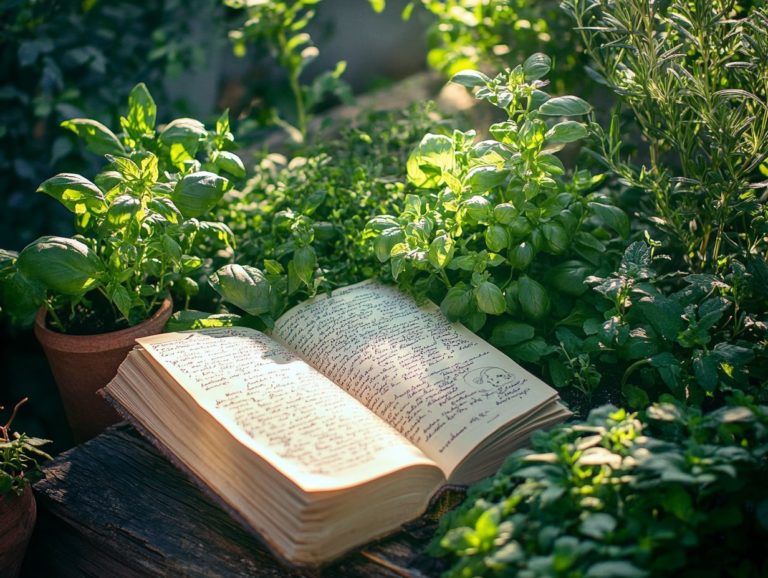Do Herbal Remedies Interact with Alcohol?
Herbal remedies have increasingly become sought-after natural alternatives for a range of health concerns. However, combining them with alcohol can be a delicate matter.
This article delves into the essence of herbal remedies and their potential interactions with alcohol, showcasing specific examples such as St. John’s Wort, Kava, and Ginseng. It examines possible risks and side effects while providing guidelines for safe consumption.
Understanding these interactions is essential for anyone looking to maintain their health while enjoying the occasional drink.
Contents
- Key Takeaways:
- Understanding Herbal Remedies and Alcohol
- Common Herbal Remedies and their Effects on Alcohol
- Potential Risks and Side Effects
- Guidelines for Safe Consumption
- Frequently Asked Questions
- Do Herbal Remedies Interact with Alcohol?
- What are the potential risks of combining herbal remedies with alcohol?
- Which herbal remedies are most likely to interact with alcohol?
- How do I know if the herbal remedy I’m taking can interact with alcohol?
- Can herbal remedies increase the effects of alcohol?
- Is it safe to use herbal remedies and alcohol together?
Key Takeaways:
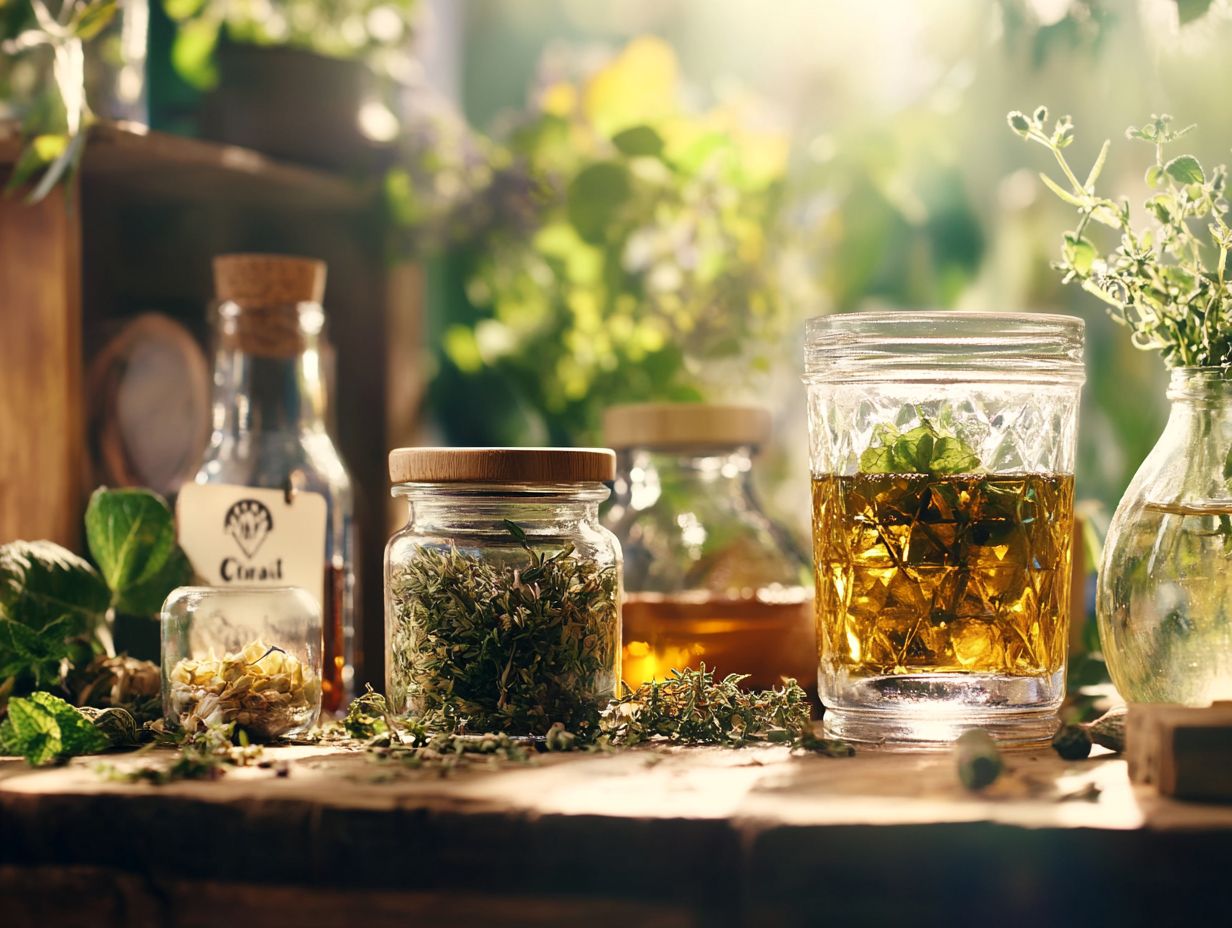
- Understand how herbal remedies can affect your health when combined with alcohol.
- Some remedies like St. John’s Wort can make alcohol effects stronger.
- Always consult a healthcare professional before mixing these substances.
Understanding Herbal Remedies and Alcohol
Understanding the relationship between herbal remedies and alcohol is crucial for managing chronic conditions like diabetes or hypertension, and for those exploring alternatives for depression. Combining herbal remedies with alcohol can introduce significant risks, especially regarding liver damage, which can impair your body’s ability to process substances, and cardiovascular issues.
Don t overlook the risks involved, particularly for older adults who may be more vulnerable to adverse effects.
What are Herbal Remedies?
Herbal remedies, often known as herbal supplements, are natural treatments derived from plants used in traditional medicine to promote health and wellness. These remedies have been pivotal in various cultures and have recently surged in popularity as people seek alternatives to synthetic drugs.
Historically, herbs like echinacea were used by Native Americans to fight infections, while ancient Chinese medicine relied on ginseng to boost energy and alleviate stress. Today, you might turn to lavender for its soothing effects or turmeric for its anti-inflammatory benefits.
This blend of tradition and modernity shows how herbal remedies are carving out their space in healthcare systems. The ongoing exploration of nature s bounty invites you to discover the benefits these time-honored plants can offer.
How Does Alcohol Interact with Herbal Remedies?
Alcohol can significantly alter the effects of herbal remedies, leading to unpredictable interactions that might cause serious side effects or problems with thinking or memory.
This concern affects older adults and those on chronic medications, as their bodies may already face various health challenges. For example, combining alcohol with ginseng can amplify feelings of anxiety, while mixing St. John’s Wort with alcohol may reduce the effectiveness of certain prescription drugs, potentially leading to adverse reactions. It’s important to learn how to use herbal remedies responsibly to avoid such complications.
Therefore, it’s crucial to consult healthcare providers before mixing these substances. This step ensures a safer approach to health management and minimizes the risk of harmful interactions, providing peace of mind as you prioritize your well-being.
Common Herbal Remedies and their Effects on Alcohol
Several well-known herbal remedies, such as St. John’s Wort, Kava, and Ginseng, can produce noteworthy effects when combined with alcohol. This combination may lead to harmful interactions or even reduce the therapeutic benefits you are seeking.
St. John’s Wort
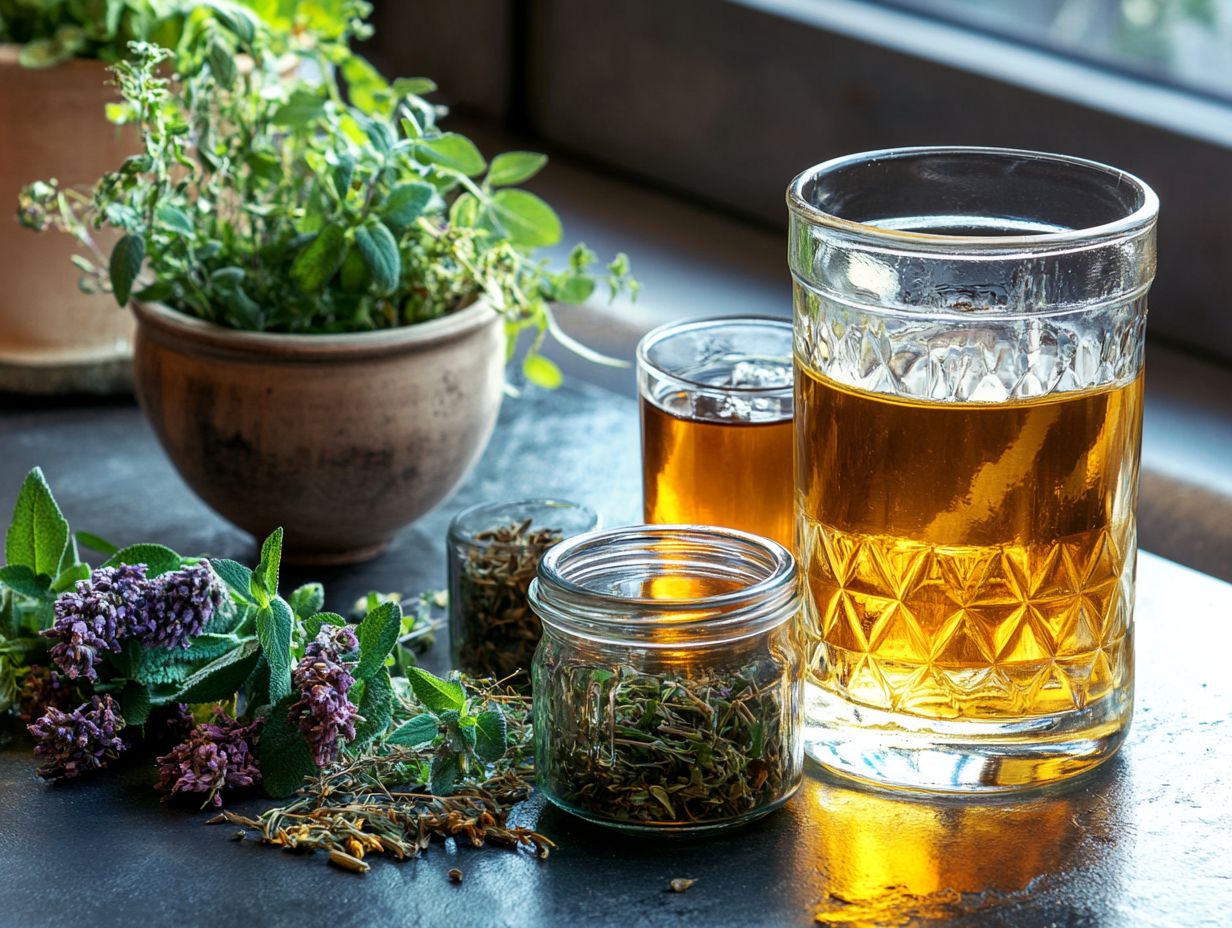
St. John’s Wort is a well-regarded herbal remedy often sought for addressing depression. However, when combined with alcohol, it poses significant risks that can lead to perilous interactions and heightened side effects.
This traditional herbal supplement is celebrated for its potential to uplift mood and soothe feelings of sadness. It works primarily due to its active compounds that help balance mood chemicals in the brain. Mixing St. John’s Wort with alcohol may lead to cognitive impairments such as drowsiness and dizziness. These effects can disrupt your daily activities and diminish your overall quality of life.
Additionally, this combination can increase the risk of liver damage. Both substances are metabolized by the liver, potentially overburdening this essential organ. Therefore, anyone considering this herbal treatment should proceed with caution, especially in social settings where alcohol is commonly consumed. To learn more about potential risks, check out are there side effects of herbal remedies?
Kava
Kava is renowned for its soothing effects and is often sought after for relieving anxiety. However, it comes with serious risks when paired with alcohol. The combination can lead to potential liver toxicity and severe drowsiness definitely not a recipe for a good time.
This beverage, derived from the roots of the kava plant, has been cherished in various cultures for its ability to promote relaxation and ease stress. Its calming properties make it a favored choice for those exploring natural alternatives to pharmaceutical treatments for anxiety.
The dangers of mixing this tranquil remedy with alcohol are significant. Such interactions can impair liver function, prompt serious respiratory issues, and elevate the risk of overdose. If you’re thinking about trying this combination, it’s vital to understand how to safely mix different herbal remedies and the risks involved.
Ginseng
Ginseng is an herbal remedy revered for its potential to boost your energy. However, be cautious alcohol can undermine its benefits and lead to unpredictable interactions.
This esteemed natural herb helps the body adapt to stress and is often sought for its ability to enhance stamina, improve mental clarity, and reduce stress levels. However, when mixed with alcohol, the positive effects of Ginseng may significantly diminish, as alcohol can depress your central nervous system, potentially neutralizing Ginseng’s stimulating properties. It’s also important to understand how to balance herbal remedies with conventional medicine for optimal health benefits.
Combining these substances could lead to adverse side effects, including reduced cognitive function, impaired judgment, and heightened feelings of confusion or dizziness. If you’re considering this herbal supplement, it’s vital to recognize these potential risks to ensure a balanced approach to health and wellness.
Potential Risks and Side Effects
The potential risks and side effects of combining alcohol with herbal remedies are extensive. They can vary greatly depending on the particular herbs you choose and your unique health conditions.
Interactions to Watch Out For
Several interactions should be kept in mind when combining alcohol with herbal remedies, especially regarding medications like antidepressants, NSAIDs, and blood thinners.
For instance, consuming alcohol alongside antidepressants can heighten side effects such as drowsiness and dizziness, which may lead to impaired judgment. Similarly, mixing alcohol with non-steroidal anti-inflammatory drugs (NSAIDs) like ibuprofen can increase the risk of gastrointestinal bleeding, raising significant health concerns. If you re using blood thinners, such as warfarin, be aware that alcohol can alter the metabolism of these medications, potentially leading to dangerous outcomes.
Given these risks, it’s essential to seek guidance from healthcare providers to fully understand the implications of these combinations and to ensure your safety. Always consult your healthcare provider before combining herbal remedies with other treatments to protect your health.
Possible Side Effects
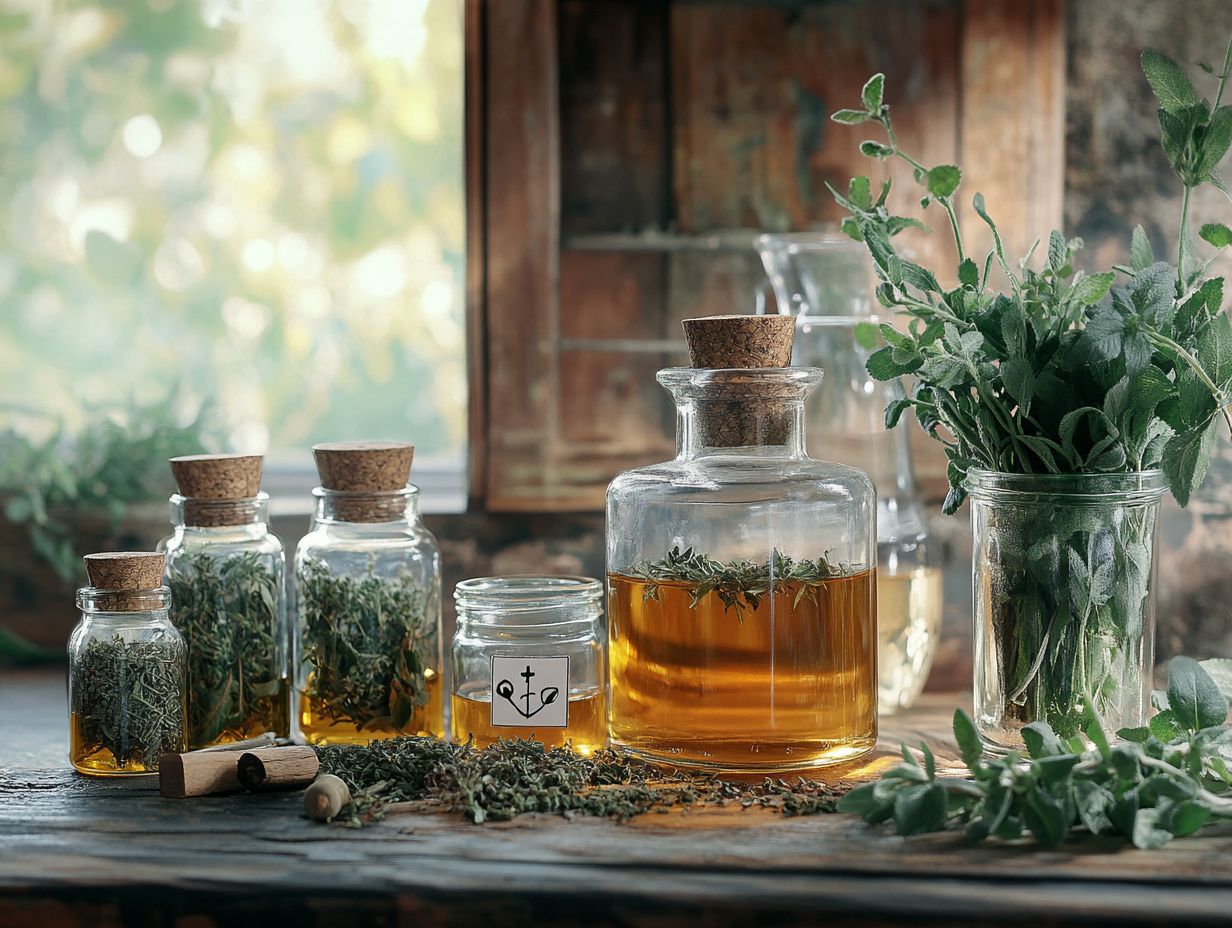
Mixing alcohol with herbal remedies can lead to a spectrum of side effects. These range from mild discomfort like nausea and dizziness. To more severe consequences, such as respiratory depression and liver toxicity.
You might assume that herbal products are completely safe. However, this misconception can result in alarming physical reactions, including irregular heartbeats and stomach problems. Cognitive issues like impaired judgment and memory lapses may also arise.
The unpredictable nature of how these substances interact within your body heightens the risks. You must understand that while herbal remedies may provide benefits, their safety is not assured when paired with alcohol.
Prioritizing safety should always be your top concern. This helps prevent potentially devastating health consequences.
Guidelines for Safe Consumption
Understanding the guidelines for safely consuming alcohol alongside herbal remedies is essential. This is especially important for older adults and individuals with chronic conditions, as they may be more vulnerable to potential interactions and adverse effects.
Prioritizing this awareness allows for a more informed approach to wellness. This ensures that choices made are both safe and beneficial.
How to Safely Combine Herbal Remedies and Alcohol
To safely combine herbal remedies and alcohol, always adhere to the guidelines set forth by healthcare providers. Make informed decisions grounded in your health status.
This process requires a clear understanding of the potential effects of both substances and their interactions. Always consult a healthcare professional before mixing these elements, particularly if you re taking medications or have underlying health issues.
Dosage recommendations can vary significantly. Starting with small amounts is wise as you gauge your individual tolerance. Timing is crucial; consuming herbal remedies and alcohol at different intervals can help mitigate adverse reactions.
Be aware of specific interactions. For example, certain herbs, such as St. John s Wort or kava, can amplify alcohol s effects. This knowledge will enable you to avoid unintended side effects and ensure a much safer experience.
Frequently Asked Questions
Do Herbal Remedies Interact with Alcohol?
Yes, some herbal remedies can interact with alcohol.
What are the potential risks of combining herbal remedies with alcohol?
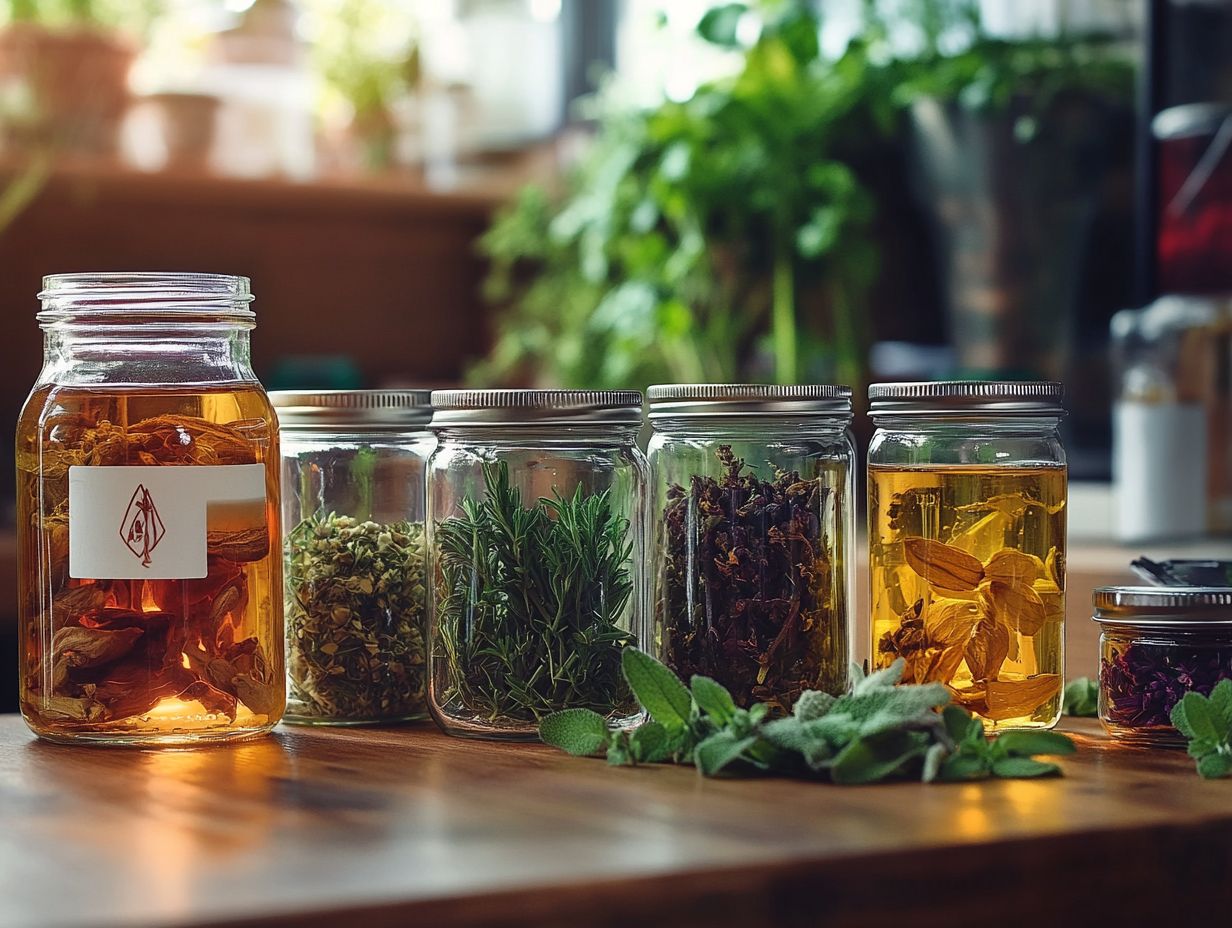
The potential risks of combining herbal remedies with alcohol include increased side effects, reduced effectiveness of the herbal remedy, and potential liver damage.
Which herbal remedies are most likely to interact with alcohol?
St. John’s Wort, kava, and valerian are some of the most common herbal remedies that may interact with alcohol.
How do I know if the herbal remedy I’m taking can interact with alcohol?
It is important to talk to your healthcare provider before combining herbal remedies with alcohol. They can advise you on potential interactions and help you make informed decisions.
Can herbal remedies increase the effects of alcohol?
Yes, some herbal remedies may increase the effects of alcohol, leading to drowsiness, dizziness, and impaired judgment.
Is it safe to use herbal remedies and alcohol together?
It is generally not recommended to combine herbal remedies and alcohol. Always speak with your healthcare provider and be cautious when taking them together.

